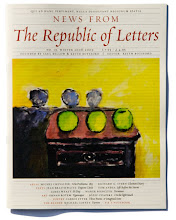Dickens was received at the White House by President Tyler, who said he was glad he could come by, and hoped he would see him again, sometime. Was this the first observed instance of our ever-shortening attention span? One learns from reading. Living as we did under the banner of Liberty, Equality and Fraternity as discovered by Jefferson, Mrs. Trollope found 'mankind an unamalgamated mass of grating atoms.' A fictitious equality had 'poisoned the American political system.' Men 'attained power and fame by eternally uttering what they know to be untrue.' Which sounds to me a fair enough description of Congress.
For surely no man was ever elected by stating the unpleasant truth that Inequality is what is, and Equality is only what some people think should be. 'When monstrous institutions' do their best to change men's 'nature' they open them up to gratifying their every 'furious and beastly rage', said Dickens. That, too, should be plain. Turn up a little corner of liberty and the whole Magic Carpet flies off with you aboard. Not all our fantasies of what we can be are good, or even sane.
Some of the best things in Dickens lie in his excoriation of journalists. He was one. He knew what he was talking about. I have been one and I think I know what their game is. One part of the trade, as it was, is immortalized in Evelyn Waugh's wonderful Scoop. That little novel, intensely funny, and Black Mischief have to be among the most politically incorrect books still in print. How long before they are banned? At least in Massachusetts. The other part of that drink-sodden profession, its megalomaniacal side, its cant about objectivity and standards, is meat for the P.G. Wodehouse jaws. All I want to know is how is it that we have allowed the 'media' to govern our opinions? When I see Mme. Anampour's 'sincerity' advertising on CNN, I puke: no fact is too obvious for her to posture about her concerns with this and that cause, and that cause is supposed to give us 'grave concern'. Which is nonsense. Journalists don't stand for anything except their expense accounts. Whereas good reporters -- and Dickens and Defoe were marvelous ones when not preaching -- let us hear, let us see, and let us understand what is going on. The moment a journalist thinks he's something more than our eyes and ears and begins to think he is someone whose name we should remember, he's kidding himself and trying to fool us. You need both qualities -- self-deception and persuasiveness -- to become a celebrity. How to avoid that is not taught in schools of journalism. And though a sucker is born every minute, we don't have to join them.
I remember some delicious nights, all starting at 11 p.m., when Mike Wallace started his black-and-white inquisitions on TV. For about three weeks everyone I knew gathered about the box to see Mike, stuffed with facts and evidence, get the bastards. It was riveting, great fun, and one imagines with delectation O.J., Glenn Beck, Jim Baucus et alia being taken apart. Alas! Came the day when one phoney 'celebrity' (I seem to remember he was a glorified hairdresser) appeared on the show. At first he answered politely. But by Minute Ten, he began asking questions back, of Mike. He too had facts and evidence. Mike, with whom I used to play tennis regularly, never really recovered. Now that was journalism.












